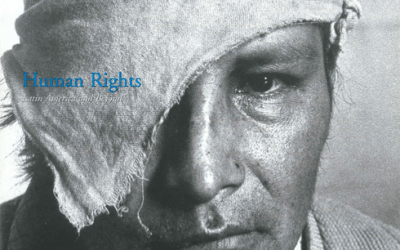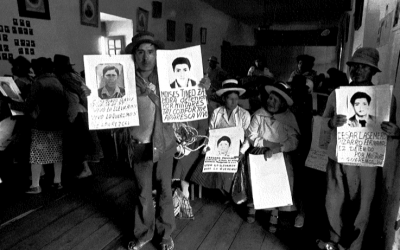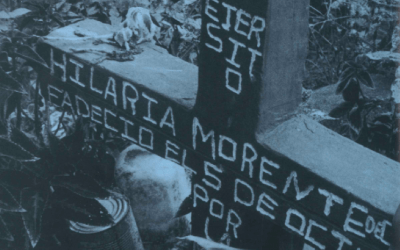The Persistent Insanity of Augusto Pinochet
When Pinochet was given his freedom by the courts and ushered out of the Senate in July of 2002, it was always with the expectation that he would avoid the public spotlight and stay at home with his mouth shut for the remainder of his years. This deal seemed to hold until this long cold winter of 2003. With pressuring building up for the 30th anniversary of the coup which brought Pinochet to power, human rights once again dominated the national agenda. Pinochet himself made headlines in June, when was on vacation in northern Chile. A middle aged woman, who claimed that Pinochet was responsible for her brother’s death, shouted “asesino” at him and attempted to slap him in the face. This incident was widely publicized throughout Chile, and the whole nation was reminded of both the extent of Pinochet’s fall from grace and his continuing personal liberty.
At the beginning of August, Pinochet entertained General Cheyre in his home, purportedly to discuss the state of the human rights cases against military officers. Several days later he gave a five minute speech to a luncheon for retired officers, saying “there is only one Army-that of yesterday, today, and tomorrow” in an obvious rebuttal of Cheyre’s declaration distancing the Army from past human rights abuses. Within days there were calls for fresh medical examinations of Pinochet and prosecutors convinced Judge Guzman to try again to strip Pinochet’s immunity. This move was blocked by a Santiago appeals court a few weeks later, but inspired hope that Pinochet may be tried in Chile after all. Despite prior predictions that Pinochet would be spending this September 11th “in court” or “at home on the advice of his doctor” he made headlines again by donating his Presidential Sash to the Foundation which bears his name. He gave a short and relatively muted speech defending the military’s intervention on what he calls the “decisive day”. This was just seconds after President Lagos’ emotional appeal to Chilean unity at La Moneda, where he re-opened the door through which Salvador Allende’s body had been carried out 30 years earlier.
Fall 2003, Volume III, Number 1
Jonathan Taylor ’03 graduated from Harvard in June with a bachelor’s degree in government and a Latin American studies certificate. He is currently working for Poder Ciudadano in Buenos Aires, and in January will go to work for IDL in Lima. For a much, much longer discussion of this article, write to him at jonathan_taylor@post.harvard.edu.
Related Articles
Human Rights: Editor’s Letter
During the day, I edit story after story on human rights for the Fall issue of ReVista. During the evening, I work on my biography of Irma Flaquer, a courageous Guatemalan journalist who was…
ONGs en América Latina y los derechos humanos
Las ONG ofrecen mil modos de recordar la dignidad humana a los gobiernos y las sociedades. Las dos experiencias que esbozo en esta nota reflejan algunas de las estrategias asumidas por…
Peru’s Human Rights Coordinating Committee
The human rights abuses that devastated Peru from the early 1980s to the mid 1990s are once again an issue of debate in that country with the release of the Peruvian Truth and Reconciliation’s…




